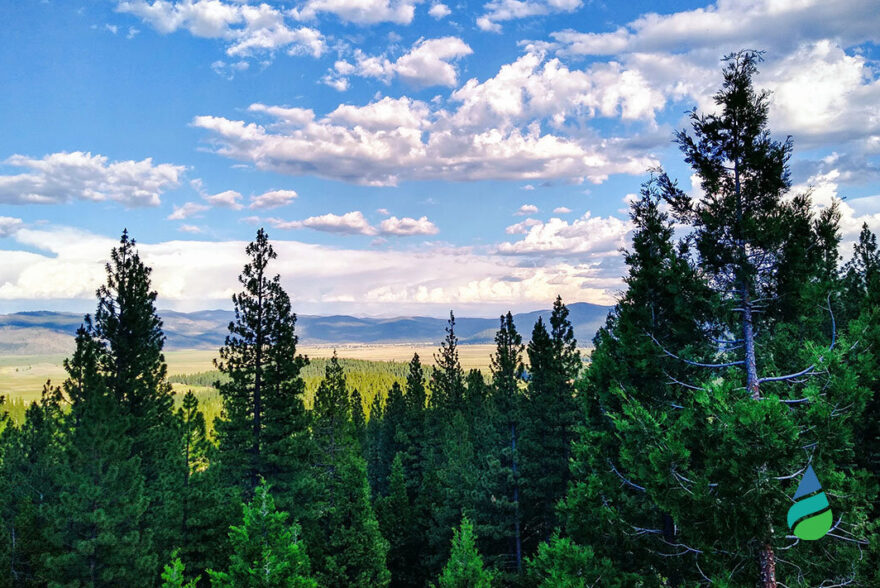The Forest Resilience Bond: Funding wildfire prevention in the West


Enter the Forest Resilience Bond (FRB), Blue Forest’s conservation finance mechanism which seeks to overcome the funding gap for forest restoration.
Written by: Jessica Alvarez, Communications & Content Manager
In a changing climate, catastrophic wildfire is steadily becoming one of the biggest threats to communities, landscapes, and ecosystems in the Western U.S. and across the globe. Last year, the U.S. experienced its worst wildfire season in history, destroying entire communities in California, Oregon, and Washington. In California alone, there were costs upwards of $6 billion in insured losses. Amidst a 2021 wildfire season that already promises to be even more devastating, the need for solutions is as crucial as is securing funding for proactive land management and forest restoration activities.
Enter the Forest Resilience Bond (FRB), Blue Forest’s conservation finance mechanism which seeks to overcome the funding gap for forest restoration. By deploying private capital to finance forest restoration projects on private and public lands, the FRB is helping to reduce the risk of catastrophic wildfire, enhancing landscape resilience, and playing a role in supporting public land management through partnerships with the US Forest Service and various organizations.
The Yuba Project: Paving the way to forest resilience
In November 2018, Blue Forest successfully launched the Yuba Project, its pilot Forest Resilience Bond (FRB) project which raised $4 million in private capital to finance critical restoration treatments. These treatments include aspen and meadow restoration, underburning and prescribed (or “good” fire), forest thinning and others across 15,000 acres of the Tahoe National Forest. Three beneficiaries – the US Forest Service, Yuba Water Agency, and the State of California – provide funding and in-kind support at contracted rates to reimburse investors as restoration activities are carried out by National Forest Foundation, the project’s primary implementation partner.

Last year, the National Forest Foundation completed a successful second year of field work despite the challenges brought on by COVID-19 and the worst wildfire season in California history. Now in its third field season of forest restoration work, the Yuba pilot project is now more than 50% complete and on schedule for project completion in 2022. Investors have also been repaid according to contracts.
Forest Resilience Bond success has been documented via our 2019 and 2020 Impact Reports. These reports track the environmental, economic, and social impacts to the local ecosystems and communities where our first FRB project was implemented.

Impact measurement and reporting align with eight of the U.N.’s Sustainable Development Goals.
Yuba II and the North Yuba Forest Partnership: Expanding our impact
Based on the success of the Yuba Project, Blue Forest partner, Yuba Water Agency, recently announced approval of a $6 million commitment as part of the funding for a second Forest Resilience Bond (FRB) on the Tahoe National Forest. This FRB project will implement over $25 million in restoration treatments to protect over 40,000 acres in the same watershed. In addition to reducing the risk of catastrophic wildfire, this project will protect communities, promote mature forest structure and habitat, protect water resources, and help to avoid carbon emissions and poor air quality that comes with large fires.

“The North Yuba, in my mind, is a result of the Yuba Project. We couldn’t have had the kind of collaboration and teamwork efforts that we have had on the North Yuba Project without the FRB and without the Blue Forest team coming to us and initiating this whole concept. The Yuba FRB really is a foundation for future large-scale work in the watershed.” – Willie Whittlesey, General Manager, Yuba Water Agency
Aptly named, the upcoming Yuba II Project is also largely a product of the collaborative work of the North Yuba Forest Partnership (NYFP), which came about in 2019. The NYFP is a diverse group of nine organizations including Blue Forest, National Forest Foundation, US Forest Service, Yuba Water Agency, South Yuba River Citizens League, Sierra County, Camptonville Community Partnership, Nevada City Rancheria, and The Nature Conservancy—all committed to forest health and the resilience of the North Yuba River watershed. The goal of the partnership is to collaboratively plan, analyze, finance, and implement forest restoration across all 275,000 acres of the Yuba River Watershed.
Looking to the future: Scaling the FRB
As work continues to progress on the Yuba Project and the Yuba II project starts to gain momentum, Blue Forest has seen increased interest in its work and model. Securing this second project is proof that the FRB is a scalable model that can be used to fund forest restoration activities and other critical environmental activities that currently lack funding.
After engaging with more than 18 National Forests, Blue Forest has identified multiple opportunities to apply the FRB in other parts of California, Oregon, and Washington. Our pipeline includes $100M worth of projects protecting over 1 million acres. These opportunities for expansion demonstrate the huge potential for FRB scaling as well as the need for financial instruments that extend infrastructure finance to forests and watersheds—our natural infrastructure. In addition to expanding in acreage, Blue Forest is exploring how the FRB can increase in scope to include the benefits of forest resilience even more holistically, with various foci such as salmon habitats, public health, and local economies.